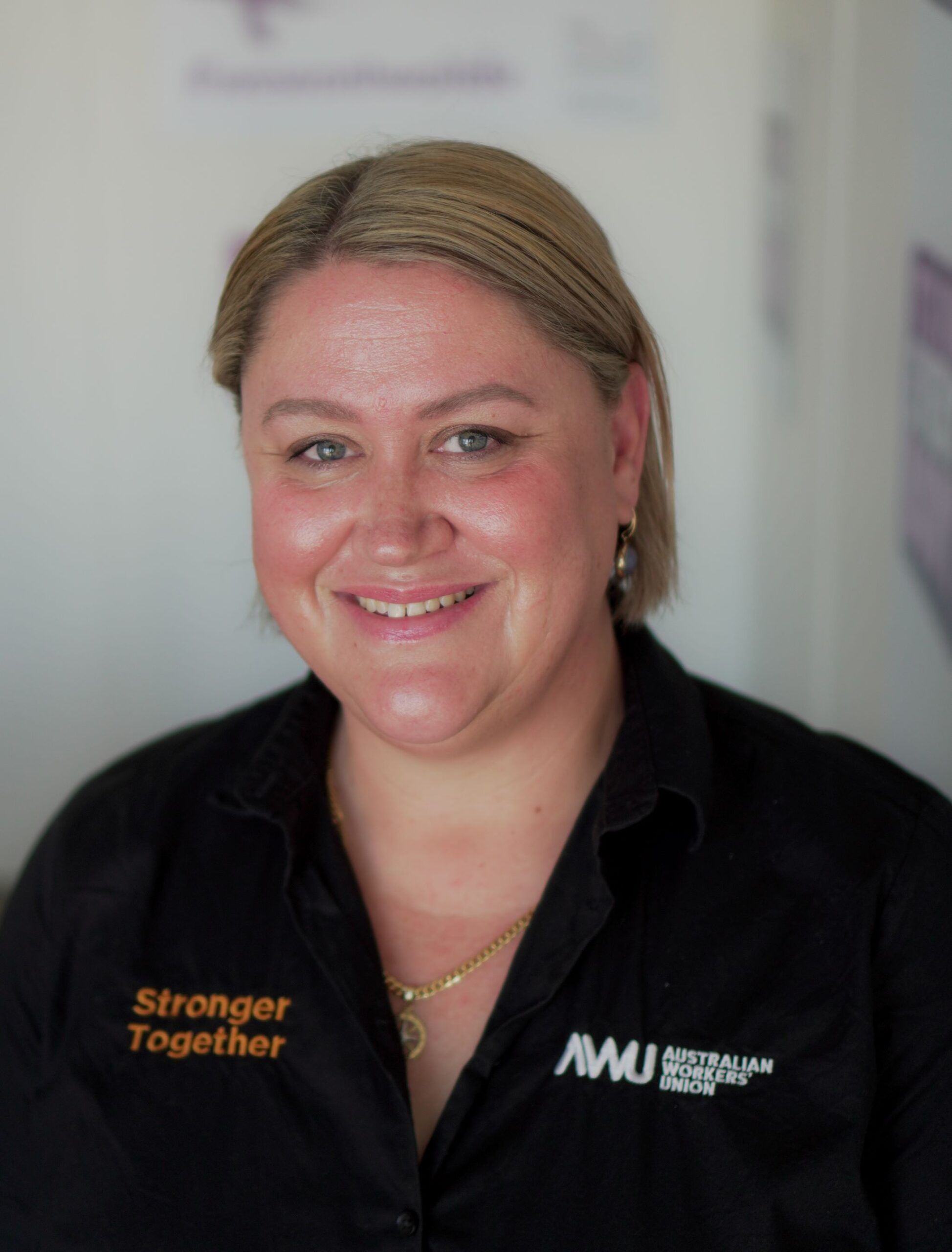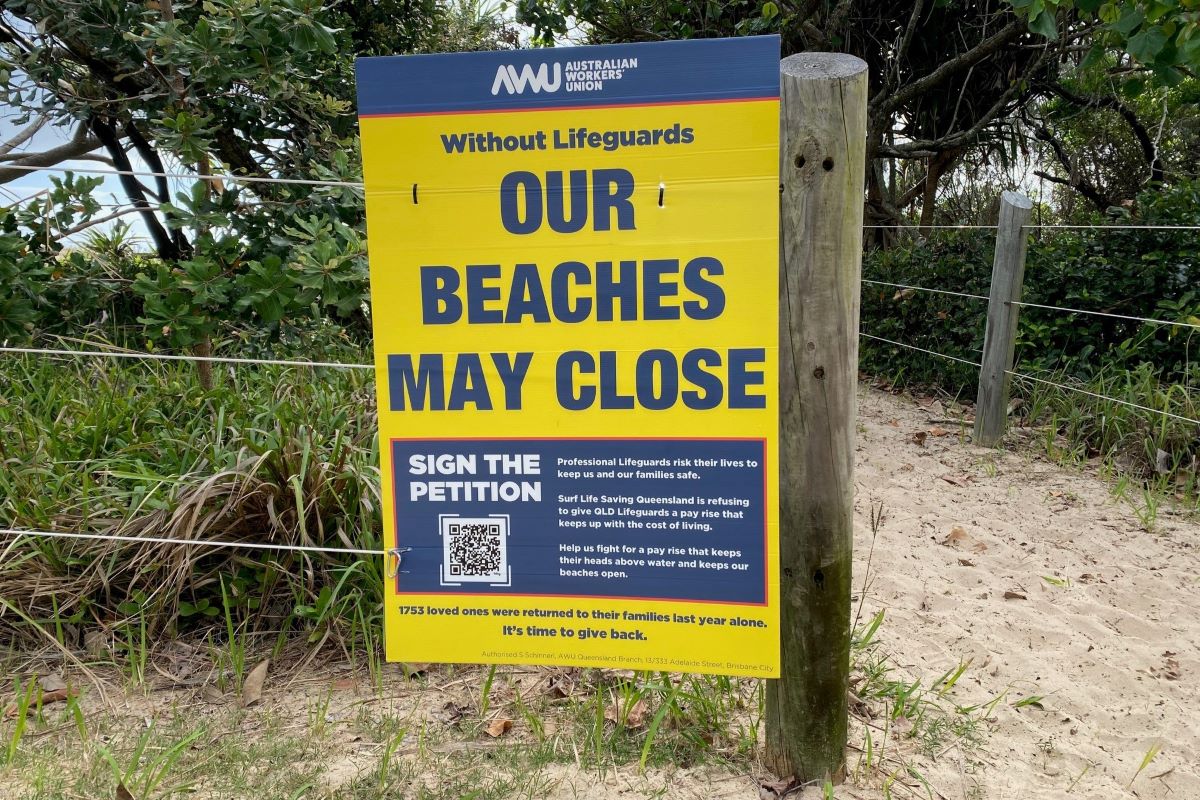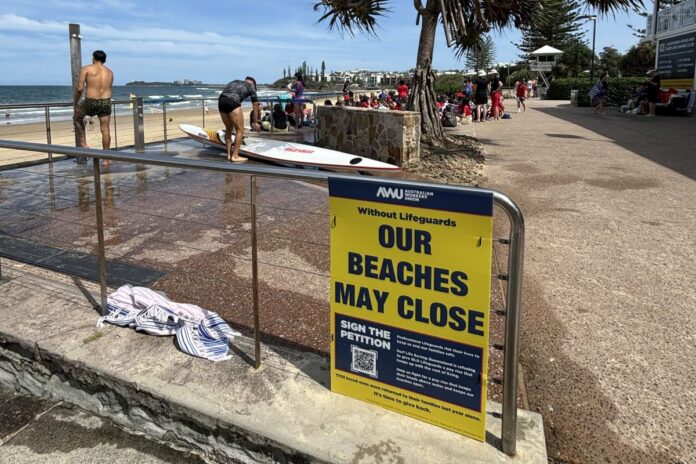Lifeguards and Surf Life Saving Queensland remain unable to agree on a new enterprise agreement, seven months into negotiations.
The Australian Workers’ Union is seeking a 3 per cent annual wage increase on behalf of lifeguards but SLSQ maintains it has already paid an extra 9.5 per cent by passing on federal wage increases of 5.75 per cent and 3.75 per cent over the past two years.
Most of the lifeguards who watch over Queensland’s beaches when volunteers do not are employed by SLSQ, which contracts to local councils.
AWU Queensland secretary Stacey Schinnerl said lifeguards directly employed by Gold Coast City Council were up to $10,000 a year better off than lifeguards employed by SLSQ.
Ms Schinnerl said the Gold Coast lifeguards were employed under local government agreements, while the lifeguard agreement with SLSQ was based on the Amusements, Events and Recreation Award.

She said SLSQ had adhered to the award but its lifeguards missed out on local government agreement conditions, leading to their income falling behind.
The AWU has written to local councils asking for their support in “bridging the gap” between council and SLSQ lifeguards.
SLSQ has held the Sunshine Coast lifeguard contract since 2012 and the Noosa lifeguard contract since last year.
“At the time, the council (including Noosa) assured staff that those transferring to SLSQ would not be financially worse off,” the letter says.
“Over the last nine years, wages under SLSQ EAs (Enterprise Agreements) have fallen significantly behind the rates of Local Government Agreements, leaving Sunshine Coast lifeguards financially disadvantaged.”
Do you have an opinion to share? Submit a Letter to the Editor at Sunshine Coast News via news@sunshinecoastnews.com.au. You must include your name and suburb.
SLSQ CEO Dave Whimpey said SLSQ lifeguard wages could not be directly compared to those of Gold Coast lifeguards, who receive penalty rates.
Mr Whimpey said annual pay increases for the organisation’s lifeguards had averaged 4.155 per cent over the past 10 years.
He said lifeguard pay rates were based on length of experience.

“More than 50 per cent of our lifeguards are in the top categories. More than 50 per cent are in three, four, five and six,” Mr Whimpey said.
SLSQ has offered a one-off payment of up to $1100 for lifeguards but despite this, the AWU has called on SLSQ to put a fair deal on the table and launched a petition seeking public support their campaign.
“Lifeguards have put up with a string of unsatisfactory wage rises and now it’s time to draw a line in the sand and say enough is enough,” Ms Schinnerl said.
Mr Whimpey said SLSQ was committed to its 457 lifeguards and ensuring they were looked after.
“Our lifeguards are the most important people in the organisation after our volunteers,” he said.





